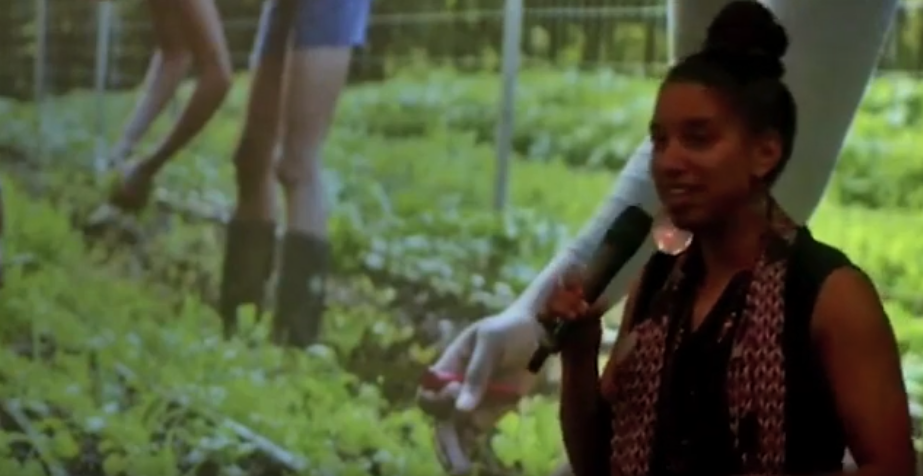A new narrative for farmers of color
 Leah Penniman, co-founder of Soul Fire Farm presents keynote address at EcoFarm 2020 in Pacific Grove, Calif. (EcoFarm)
Leah Penniman, co-founder of Soul Fire Farm presents keynote address at EcoFarm 2020 in Pacific Grove, Calif. (EcoFarm)
The time is ripe to bring forward diverse experiences to the forefront of the future of farming.
California is one of a handful of states where people of color and women are now the majority and as Leah Penniman described in her keynote at the EcoFarm conference, the time is ripe to bring forward diverse experiences to the forefront of the future of farming.
Penniman, an author, educator and co-founder of Soul Fire Farm spoke about her investigation into the origins of different sustainable agriculture techniques and her findings that history was filled with black contributions to sustainable agriculture and sustainable businesses.
“Those just aren’t talked about in the white-dominated food and land spaces,” Penniman said, “And so it was time to write a new narrative.”
View Leah Penniman's keynote address
This idea of re-writing the history we’ve been told and the fundamental need to change our way of thinking was a consistent theme throughout the conference.
The 40th annual EcoFarm conference was held Jan. 22-25 in Pacific Grove, Calif. and focused on weaving together a tapestry of speakers and workshops meant to inspire us about the real-world implications of the ecological and social aspects of sustainability.
This year’s EcoFarm conference included Spanish-language workshops, equity and justice presentations, international delegations and lifted up the voices of many female farmers and farmers of color.
The California Anchors in Resilient Communities (ARC) regional food systems initiative, coordinated by Health Care Without Harm and Emerald Cities Collaborative, is committed to increasing the opportunities for and capacity of small-scale producers and processors of color to enter into the institutional food procurement market. The security that long-term, institutional food contracts provide can help build strong, inclusive regional food economies, and Health Care Without Harm's efforts to align local and sustainable food purchasing standards across institutional sectors can help move this work well beyond the health care sector.
